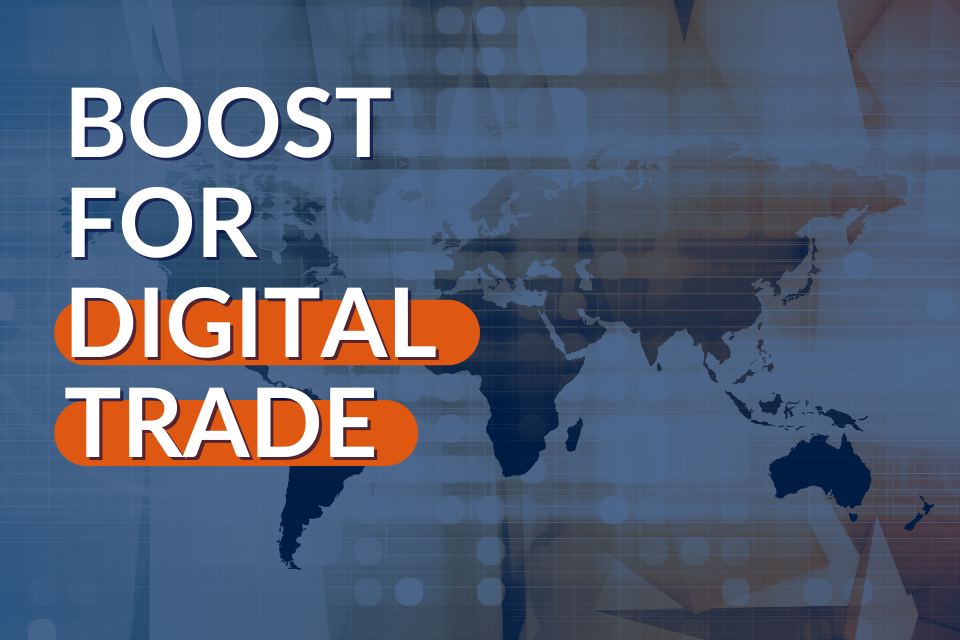- The UK and 90 other countries have negotiated a new set of rules to make global trade faster, fairer, cheaper and safer.
- If it comes into force, the deal would permanently ban tariffs on digital content, reducing costs for UK businesses and helping to protect British consumers from online fraud.
- Global adoption of digital customs systems, processes and documentation could significantly boost the UK economy
Britain Today [Friday 26 July] We joined a groundbreaking agreement aimed at promoting economic growth by promoting global digital trade.
After five years of negotiations, the UK and 90 other countries have concluded the Joint Initiative on E-Commerce at the World Trade Organisation (WTO) to make trade faster, cheaper, fairer and more secure. The initiative will help UK businesses, workers and consumers seise the opportunities of global digital trade, which the OECD estimates is worth around £4 trillion and growing.
Once implemented, all participating countries will commit to digitizing customs documentation and procedures, which will often eliminate the time-consuming, costly and outdated method of printing forms and submitting them to customs.
Signatories to the agreement will also work to recognize electronic documents and electronic signatures, reducing the need for companies to physically sign contracts and mail them around the world.
The adoption of digital customs systems, processes and documentation across the world is expected to increase UK GDP by up to £24.2 billion in 2023. Even partial adoption could result in a significant increase to UK GDP.
Signatories are also required to provide legal safeguards against online fraud and misleading product claims.
Minister for Business and Trade Jonathan Reynolds said:
We are proud to have played a part in delivering the first-ever global digital trade deal, lowering costs for businesses and realising the Government’s ambitions to deliver economic growth.
“The UK is once again proud to play its role as an outward-looking trading nation. The OECD estimates that global digital trade is already worth around £4 trillion and growing, but there are no universal rules. This is a major step towards rectifying that situation and ensuring UK businesses can benefit.”
Science Secretary Peter Kyle said:
This global agreement aims to enable people to safely use technology by protecting them from fraud, while at the same time promoting faster and safer economic growth through the digitization of trade.
We remain committed to working with partners around the world to share the benefits of technology and promote economic growth.
For UK financial services providers, doing business in participating countries will significantly reduce the need for paper contracts, invoices, handwritten signatures and authentication, as they are replaced by electronic ones.
Chris Southworth, Director General of the UK International Chamber of Commerce, said:
Businesses and economies thrive when there is one common set of rules. The e-commerce agreement is a major step forward and a wonderful reminder of the power of international cooperation. It creates the environment needed to drive innovation as we move from outdated paper-based processes to the modern world of data and technology.
This is an opportunity to accelerate efforts to digitize borders and global supply chains, and help remove unnecessary friction and costs that impede trade for small and medium-sized businesses. This is good news for businesses, consumers and the economy.
Matt Hammerstein, head of UK corporate bank at Barclays, said:
As co-chairs of the Trade Digitalisation Taskforce with the UK ICC, we are working closely with Government to support efforts towards ensuring the competitiveness of UK exports, driving the digitisation of trade at scale and continuing to streamline processes related to fraud and financial crime risks.
“We welcome this announcement as it will make trading easier for UK SMEs and large businesses by removing paper-based trade barriers. Barclays is ready to play its part to support the success of UK exports.
Achieving this agreement is part of the Administration's efforts to rebuild and strengthen global partnerships and uphold a rules-based international order. It is an important step in modernizing the global trade rulebook and promoting cooperation in the World Trade Organization.
The E-Commerce Joint Initiative not only creates new growth opportunities for the UK, it also recognises the importance of supporting developing and least developed countries to ensure growth and prosperity for all.
Attention now turns to working with our WTO partners to incorporate the Agreement into the WTO legal framework, followed by ratification by the UK.
Notes to editors:
- The outcome of the Joint Initiative on Electronic Commerce is officially called the Agreement on Electronic Commerce.
- The OECD estimates that global digital trade was worth around $5 trillion in 2020. Converted to pounds sterling at market exchange rates, this works out to around £4 trillion. The OECD defines this as all trade that is ordered or delivered digitally.
-
The report, “Benefits of digitalising trade processes and cross-border barriers to their adoption,” estimates that the global adoption of advanced digital trade systems and electronic trade in services could boost UK GDP by up to 0.9% and 0.1%, respectively.
- Applying this to ONS UK GDP for 2023 (£2.687 trillion at current prices) would result in a 0.1% increase being £2.7 billion, and a 0.9% increase being £24.2 billion.


